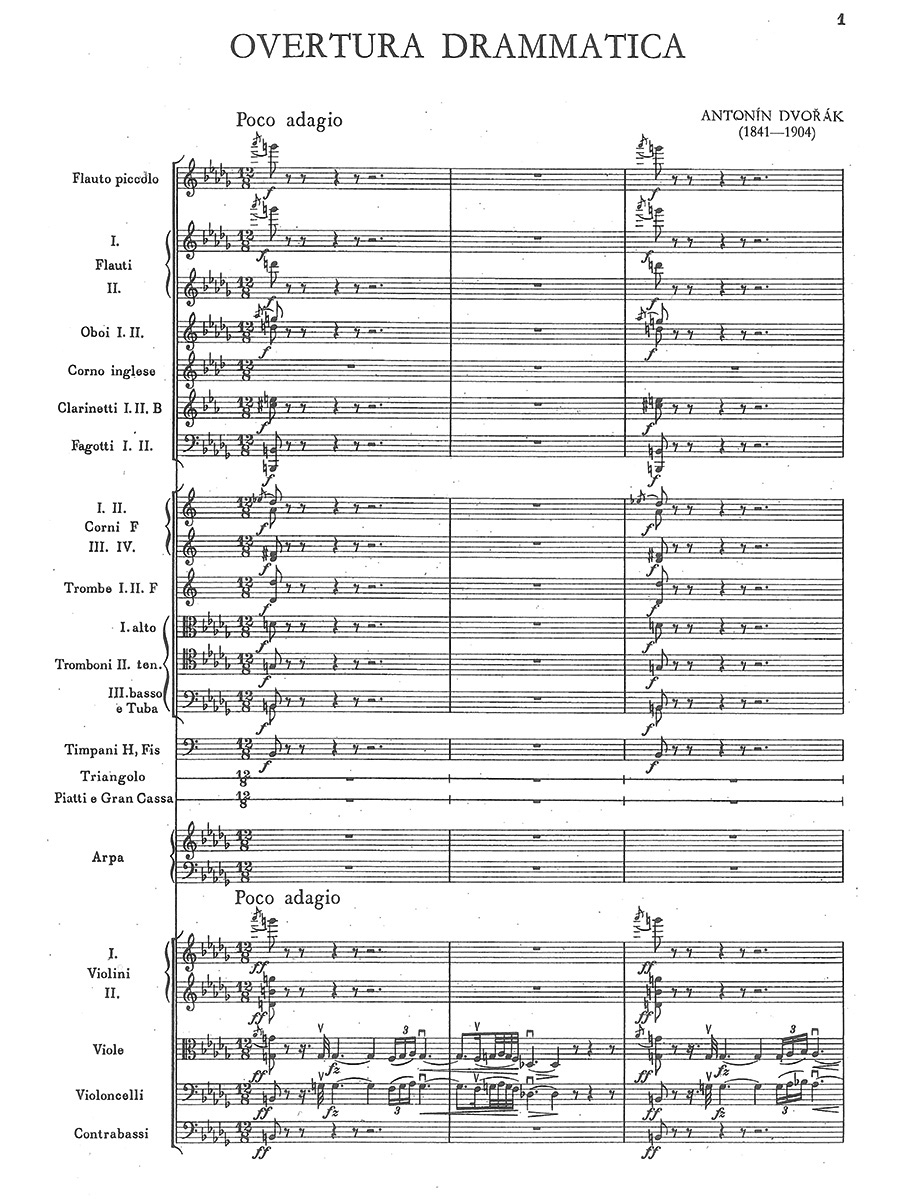Dramatic Overture for Full Orchestra
Dvorák, Antonín
26,00 €
Preface
Antonin Dvořák
Dramatic Overture for Full Orchestra (1870)
(b. Nelahozeves, 8 September 1841 – d. Prague, 1 May 1904)
Scoring
2 fl/picc, 2 ob, eh, 2 cl, 2 bn, 4 hn (F), 2 tpt (F), 3 tbn/tba, 2 harp, timp/perc, str
Duration
ca. 14 mins.
Preface
In the world of music, Antonín Dvořák is anything but an unknown quantity. Together with Bedřich Smetana (1824-1884), he is one of the most significant of all nineteenth-century Czech composers. Works such as the Ninth Symphony (familiar not least through its programmatic nickname “The New World”), his Cello Concerto in B minor (op. 104), and several pieces of chamber music enabled him to go down in music history and to thrill myriad concert-goers to the present day.
From today’s perspective, Dvořák’s successful career seems as fabulous as the subjects he so often chose as the literary basis of his music. The trade planned for him by his father could hardly have been more remote from his later vocation: if he had obeyed his parents’ will, he would have trained to be a butcher and taken over his father’s butcher’s shop. But because there were already two professional musicians in the family (one of his father’s brothers was a trumpeter, the other a violinist), his musical talents were cultivated at an early age. From 1857 to 1859 he attended the Prague Organ School, played viola in the orchestra of the St. Cecilia Society, and wrote his first pieces of music. Equally important to his further career was the fact that instruction at the organ school was in German. The knowledge of German that he acquired in this way as a young man paved the way to his choice of a German libretto for his first opera: Alfred.
In view of his popularity today, it is astonishing that Dvořák spent the first ten years of his career mainly improving his compositional skills through self-instruction and writing short practice pieces. None of these fledging efforts ever found its way onto the concert stage, first because of the lack of appropriate patronage, and second because of Dvořák’s ingrained diffidence, which caused him at first to hide his works from public view. During this period of artistic development he was inspired by such giants as Mozart, Schumann, Mendelssohn, and Wagner and earned his keep mainly as an orchestral musical and piano teacher.
Read full preface / Komplettes Vorwort lesen > HERE
Score Data
| Score No. | 1740 |
|---|---|
| Edition | Repertoire Explorer |
| Genre | Orchestra |
| Size | 210 x 297 mm |
| Printing | Reprint |
